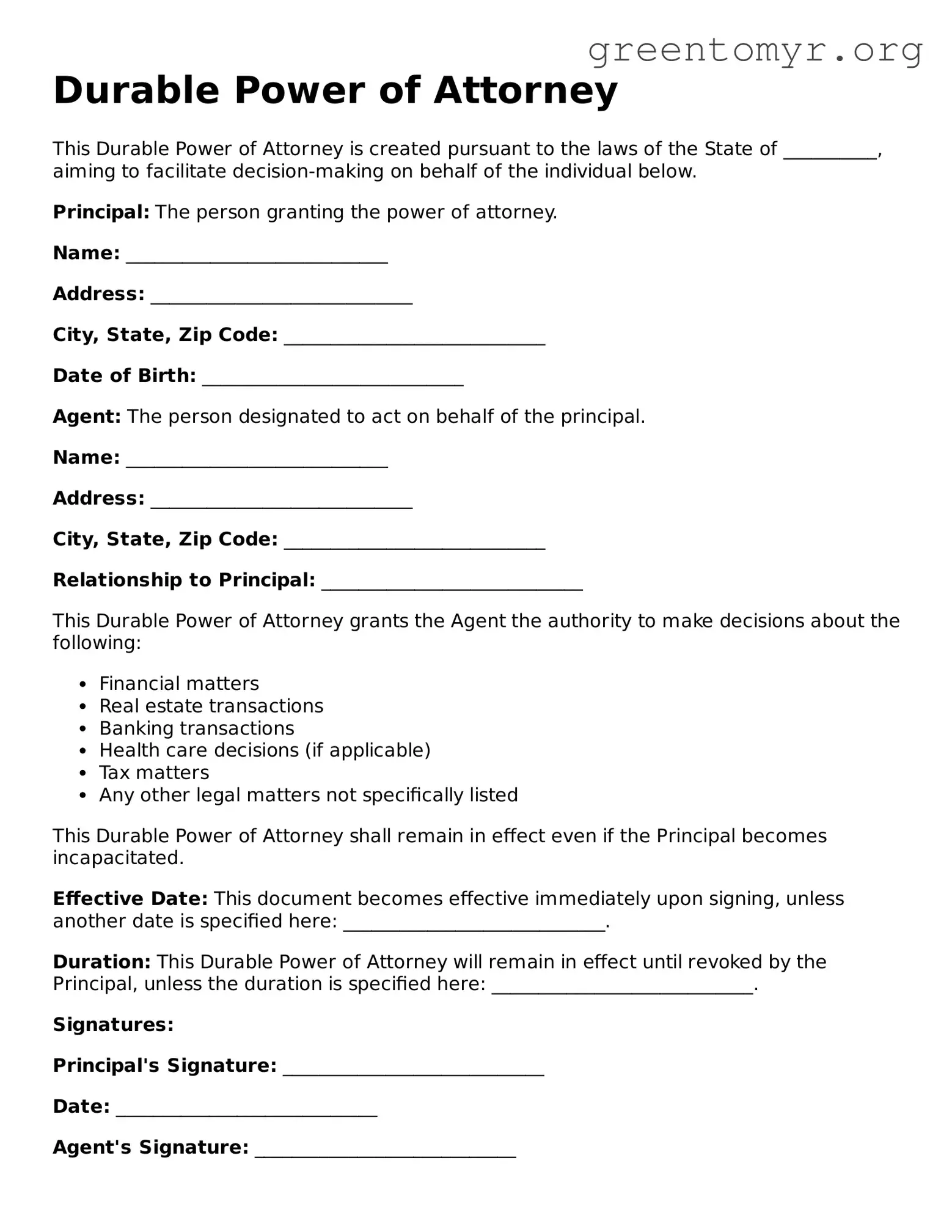Durable Power of Attorney
This Durable Power of Attorney is created pursuant to the laws of the State of __________, aiming to facilitate decision-making on behalf of the individual below.
Principal: The person granting the power of attorney.
Name: ____________________________
Address: ____________________________
City, State, Zip Code: ____________________________
Date of Birth: ____________________________
Agent: The person designated to act on behalf of the principal.
Name: ____________________________
Address: ____________________________
City, State, Zip Code: ____________________________
Relationship to Principal: ____________________________
This Durable Power of Attorney grants the Agent the authority to make decisions about the following:
- Financial matters
- Real estate transactions
- Banking transactions
- Health care decisions (if applicable)
- Tax matters
- Any other legal matters not specifically listed
This Durable Power of Attorney shall remain in effect even if the Principal becomes incapacitated.
Effective Date: This document becomes effective immediately upon signing, unless another date is specified here: ____________________________.
Duration: This Durable Power of Attorney will remain in effect until revoked by the Principal, unless the duration is specified here: ____________________________.
Signatures:
Principal's Signature: ____________________________
Date: ____________________________
Agent's Signature: ____________________________
Date: ____________________________
Witness Statement: I, the undersigned witness, confirm that the Principal signed this Durable Power of Attorney in my presence.
Witness Name: ____________________________
Witness Signature: ____________________________
Date: ____________________________
In accordance with the laws of the State of __________, this Durable Power of Attorney serves to protect the interests of the Principal and streamline the decision-making process.
